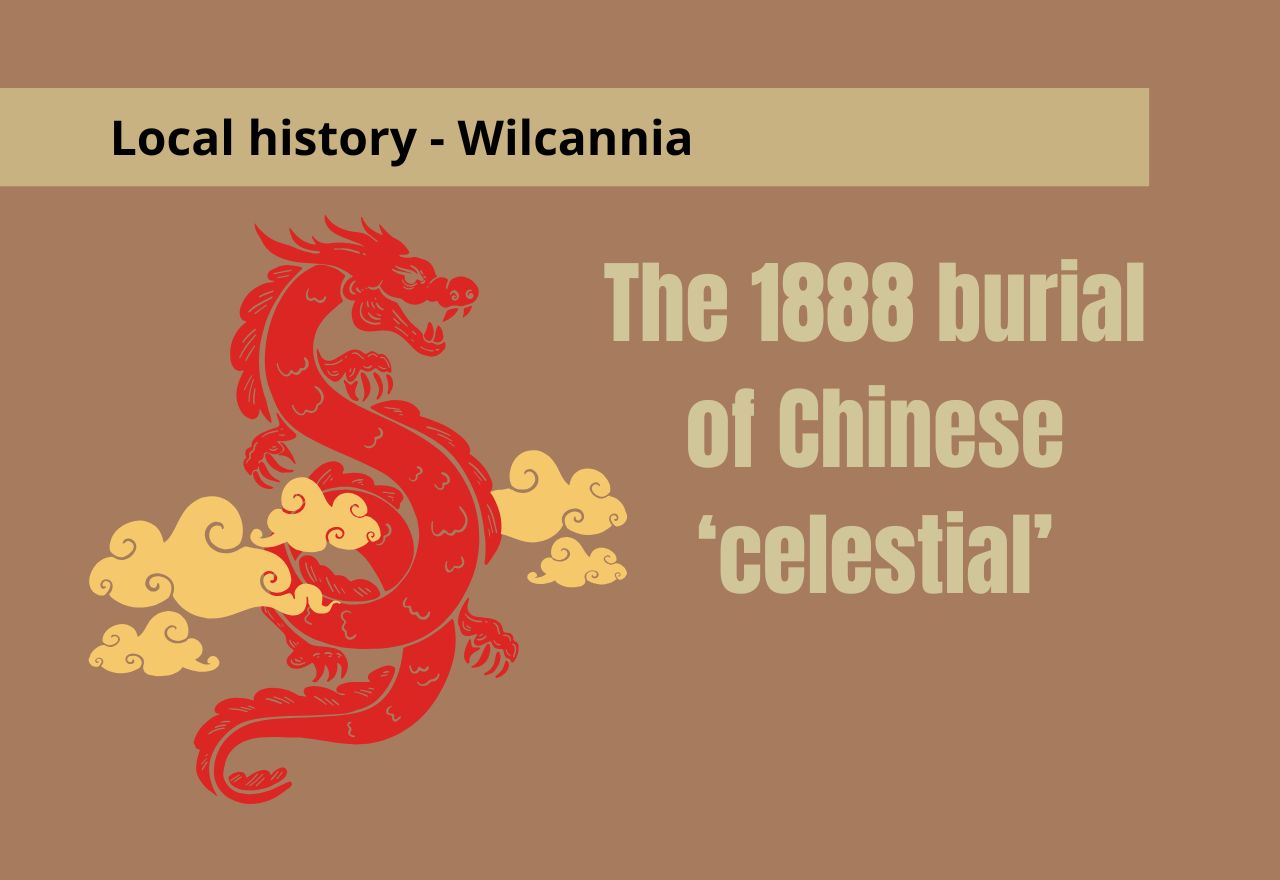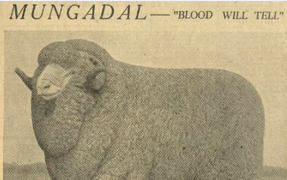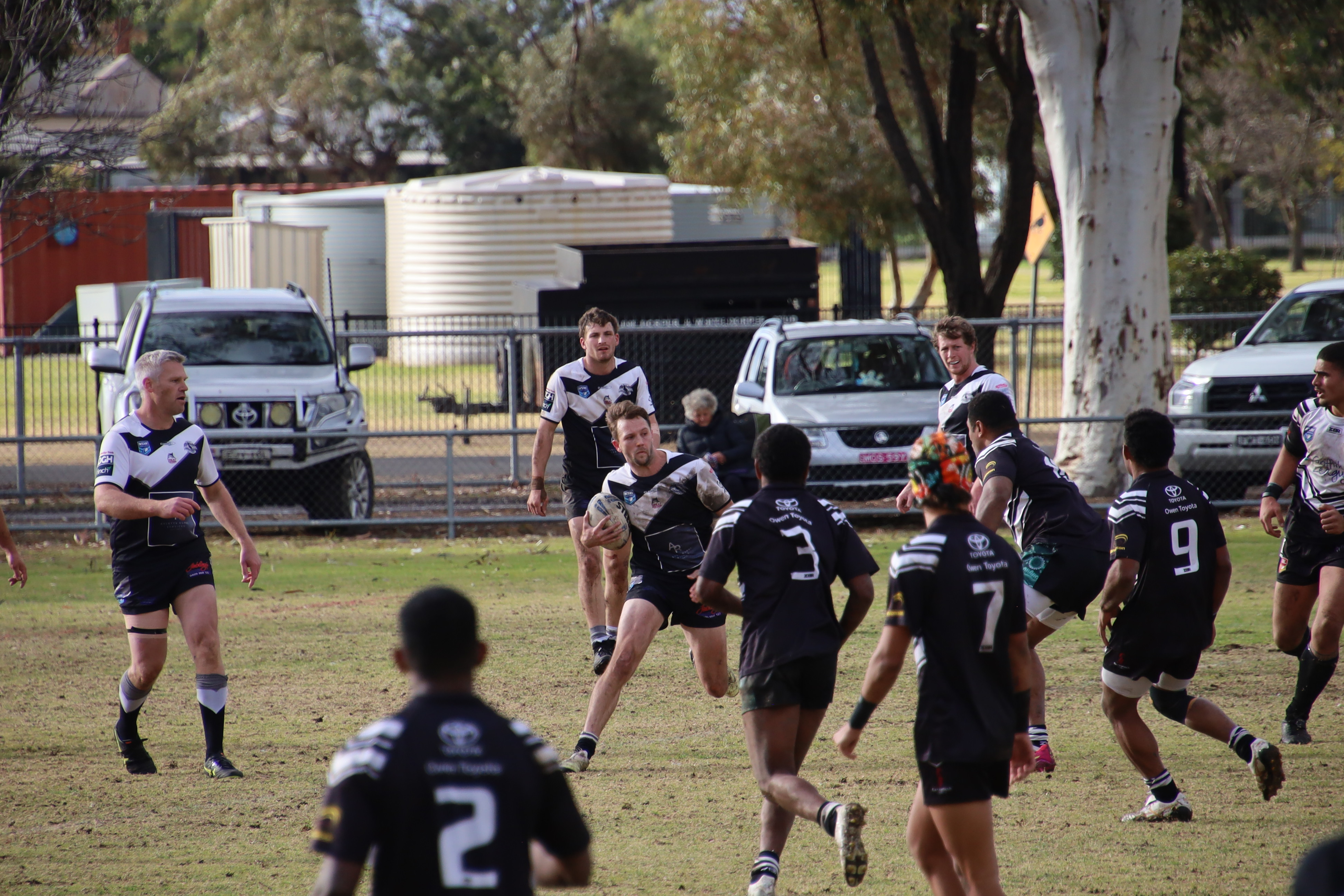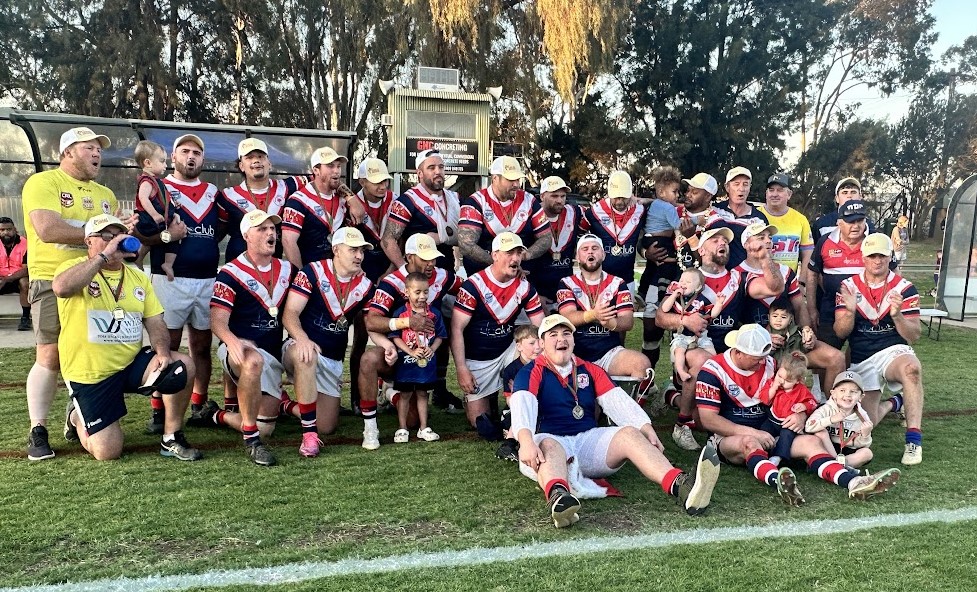Local history: The 1888 burial of Wilcannia's Chinese 'celestial'
Krista Schade
10 October 2025, 7:00 PM

From the archives: Newspaper covers the 1888 traditional Chinese burial at Wilcannia.
On August 31, 1888 the newspaper 'Port Adelaide News and Lefevre Penisula's Advertiser' published a detail account of a funeral that took place in the Back Country township of Wilcannia.
As a town Wilcannia was in its infancy in 1888, being only formally laid out in the late 1860s.
The population grew quickly thanks to the river trade, rising from just 264 in 1871 to over 1,280 by 1891 and boasted two newspapers, The Wilcannia Times and Western Grazier.
The Wilcannia Times is credited as being the source of the funeral article, published in South Australia.
Early on, Wilcannia had a significant Chinese community.
"The Chinamen here are doing a very thriving trade, and they are extending themselves gradually, but very surely.
They are taking root very firmly, especíally in the baking and refreshment line, and they seem to be patronised by everybody here.
We have a China doctor, who is a "perfect cure," so people say that know all about it.
Nearly all the cooks at the hotels are restaurants are Chinese; all the gardeners are Chinese to a man.
We have another institution added to us in the shape of a Chinese laundry. He, the laundry man, performs his work very well, and gets paid very handsomely for it."
Australian Town and Country Journal 1879
Extract from the 1888 article;
"A Chinaman named Tink Wah, erstwhile of Tilpa Station, where he followed the occupation of a cook, reached Wilcannia a few days ago, he being sick and, be it said, to the credit of his countrymen, was kindly received and tended to during his illness.
Judging from the great provision made for his comfort after the final exit, he was likely to have a good old time of it, so long as the provisions lasted.
While paying every attention to the dear departed, the wants of those cumbering the earth were not unheeded; and eau de vie, apparently somewhat inappropriate to the business in hand, was dispensed liberally.
There was much praying and consumption of gold, and silver paper, prior to the removal of the corpse to the hearse, and lively discussions as to the propriety of burning a bran-new tent, or presenting it to a " barbarian " who had been watching the defunct Celestial.
So far as could be ascertained, the tent did not grace the funeral fire, while all the other worldly possessions, clothes principally were, as is the custom, condemned to be burnt.
The outside mourning shown was small strips of white linen, displayed at the sweet will and taste of the wearer; a mourner seated on the hearse was fully employed wafting messages, consisting of pieces of paper, which apparently went to the winds.
On arriving at the grave, the coffin was placed in the usual position for lowering.
This being done, various friends of the deceased placed fowl, pork, brandy, &c., at the foot of the grave.
A mysterious bowl was placed at the foot of the coffin, which is said to contain some charm against evil spirits.
Those at the grave were careful that no large pieces of clay should cover the coffin; sweetmeats were literally showered into the grave.
After this was ended, the mourners partook of some light refreshments, and then the ceremony terminated.
It may be mentioned that, while the outsiders were cheerful enough, one Celestial, a relative of the deceased, was evidently grieved at his loss, and stood apart, mourning alone."
COMMUNITY
NEWS
SPORT







